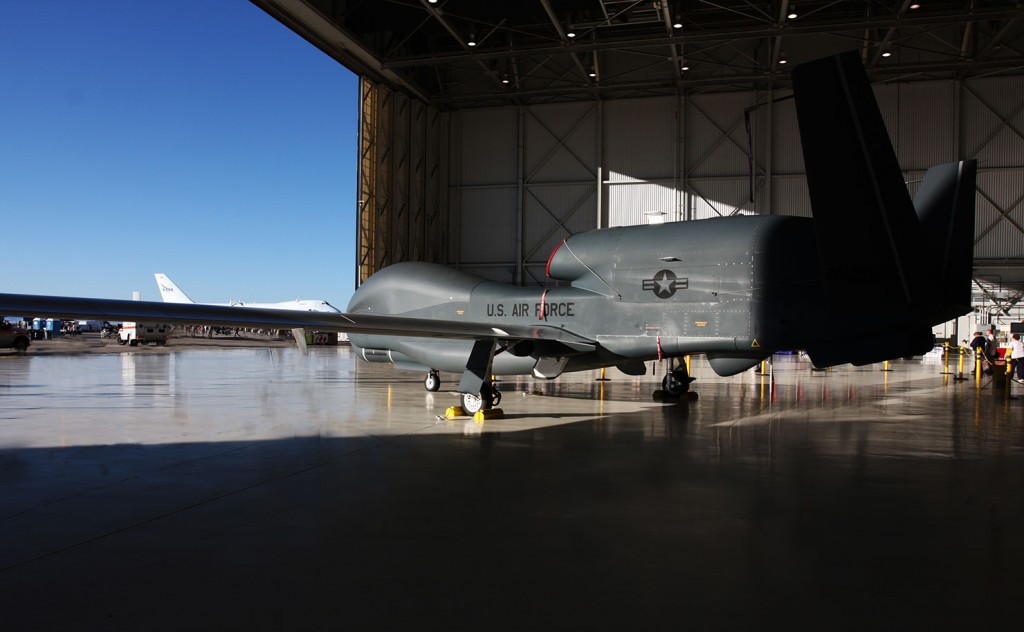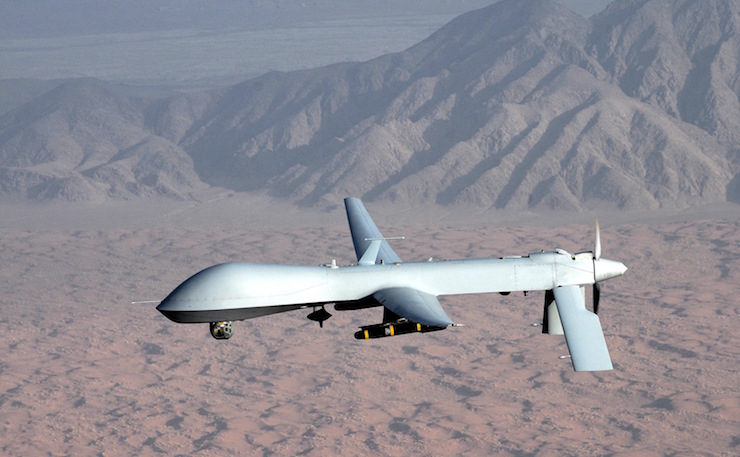Australia appears to have learned little from its disastrous involvement in the War on Terror. Bernadette Anvia explains.
It’s been a little over two weeks since the explosive Chilcot Report was published, confirming what many – except perhaps the instigators themselves – already knew to be true: that the 2003 Iraq invasion was a complete and unequivocal disaster, costing the US and its Coalition of the Willing too much money, and the state of Iraq too much blood.
The 2.6 million word report concluded that the invasion of Iraq, launched in the aftermath of the 9/11 attacks as part of President Bush’s Global War on Terror, was a military quagmire. The report outlined that the Coalition of the Willing invaded Iraq on the unjustified grounds of finding a stockpile of Weapons of Mass Destruction.
It also found that no proper consideration or resource allocation had been made for the post-war reconstruction of Iraq following the removal of Saddam. The Western powers eventually withdrew their troops and retreated to the safety of their own nations, leaving behind a nation ripped apart and a broken people forced to contend with ISIL.
Sir John Chilcot, the chairman of the inquiry, published the report with a public statement in which he wrote: “Military intervention elsewhere may be required in the future. A vital purpose of the Inquiry is to identify what lessons should be learned from experience in Iraq. There are many lessons set out in the Report. The UK’s relationship with the US has proved strong enough over time to bear the weight of honest disagreement. It does not require unconditional support where our interests or judgements differ.”
The lessons evident in the Chilcot report, and summarised by Sir John Chilcot in his public statement, should also be heeded by Australia. This week, Australia welcomed US Vice-President Joe Biden with open arms, celebrating and emphasizing our commitment to a strong military alliance that has spanned over 100 years. But the Chilcot Inquiry and its findings on the Iraq invasion should undoubtedly be the catalyst for Australia’s reassessment of this relationship with America – particularly our extensive involvement with the US’ Unmanned Aerial Vehicle (drone) program.
America’s drone program, like the Iraq invasion, is a direct product of America’s Global War on Terror.

Prior to the 9/11 terror attacks, drones were primarily used for surveillance and reconnaissance and had never been used in a lethal military capacity. However, the start of the Global War on Terror fundamentally broadened the operational roles of drones, and it was in November 2001 that the first ever drone strike was undertaken by an armed drone, which killed Mohammad Atef, a military commander of Al-Qaeda who was residing in Afghanistan.
What has since followed is the undertaking of drone strikes under the Bush and Obama Presidencies in a number of countries, including Afghanistan, Pakistan, and to a lesser extent, Yemen and Somalia.
Drones have been employed to target key members of terrorist organizations and to foil possible terrorist plots and security threats made against the US. Under the Obama Presidency, drones have been used for ‘high-value targeting’, in a process that is commonly referred to as ‘decapitation’ – whereby a drone strike is carried out to remove the head of a terrorist organization in order to dismantle terrorist groups like Al-Qaeda in Afghanistan and Pakistan, and Al-Shaabab in Yemen.
For too many years now we have seen that where America leads, Australia will follow – whether or not the path the US takes is in our national interest. This includes our involvement with the US drone program. At present moment, Australia’s Pine Gap base plays a crucial role in the US’ drone program, providing tactical information and data used to carry out their extensive UAV strikes.
But our involvement does not stop there.
According to an Australian Defence Force spokesperson, five Royal Australian Air Force (RAAF) personnel are currently “embedded” in the United States Air Force’s 432nd Operations Group, “which flies armed MQ-9 Reaper Unmanned Aircraft Systems [drones]across both Iraq and Syria in support of coalition operations”.
In addition, four of the RAAF personnel are employed in the drone program as pilots and sensor operators. Another personnel is a communications systems engineer working at the Creech Air Force Base in the US. The express purpose of this “training program” is to “[provide]a cost effective method to increase the Australian Defence Force’s understanding of complex Unmanned Aircraft System operations and how this capability can be best used to protect Australian troops in future operations.”
Research conducted by independent organisations like The Bureau of Investigative Journalism (TBIJ) and The New America Foundation has found that the US’ drone program has killed hundreds, if not thousands, of civilians through drone strikes. Data collated by The Bureau of Investigative Journalism has found that drone strikes undertaken in Pakistan alone since 2004 have killed anywhere between 424 to 966 civilians, over 150 of which are believed to be children.
Data Source: The Bureau of Investigative Journalism
| Pakistan 2004 onwards US Drone Strikes |
Yemen 2002 onwards US Covert Action |
Somalia 2007 onwards US Covert Action |
Afghanistan 2015 onwards
|
|
| TOTAL STRIKES | 424
|
127-147
|
21-31
|
362-367
|
| TOTAL KILLED | 2,499-4,001
|
552-806
|
222-386
|
1,884-2,411
|
| CIVILIANS KILLED | 424-966
|
65-101
|
3-10
|
75-121
|
| CHILDREN KILLED | 172-207
|
8-9
|
0-2
|
4-18
|
| INJURED | 1,161-1,744
|
96-228
|
2-8
|
181-189
|
The cost of drone warfare for the US is very little. Instead of controlling the drone from a cockpit, the pilot remotely maneuvers the drone from behind a screen and controller, thereby removing the human from the military equation and away from the direct line of fire.
The use of drones successfully negates the necessity of sending troops to foreign nations, meaning the superpower is now able to wage war without any ‘boots on the ground’.
But the cost of the US’ drone warfare for the civilians of these nations has proven to be very high. America is currently undertaking a military tactic as part of its War on Terror no less fatal or controversial than its Iraq invasion, and Australia is once again deeply immersed in their operations.
If Australia does not change their actions soon, we are again at danger of being complicit in the deaths of far too many civilians of another nation.
At Vice-President Biden’s speech this week in Sydney, three former Prime Ministers were present: Tony Abbott, John Howard and Bob Hawke – each having done his bit during his tenure as leader of the country to maintain friendly relations with the US.
In 2014, another former Prime Minister who worked hard to foster strong ties with the US during his leadership, the late Malcolm Fraser, released a book titled ‘Dangerous Allies’. In it he outlined his fears for what he had come to see as Australia’s dangerous alliance with the US, and his concerns about our involvement in the US drone program.
He wrote: “there are… aspects that cannot be ignored in determining Australia’s future course. Significant numbers of civilians have been killed as a result of drone attacks in countries with whom neither the United States nor we are at war. These civilian deaths raise serious questions of the possible perpetration of war crimes and/or crimes against humanity… Today, collateral damage involves untold numbers of civilians, including women and children… We should not participate in such a course.”
There’s an important lesson contained in the Chilcot report. And Australia needs to learn it very, very soon.
Donate To New Matilda
New Matilda is a small, independent media outlet. We survive through reader contributions, and never losing a lawsuit. If you got something from this article, giving something back helps us to continue speaking truth to power. Every little bit counts.





